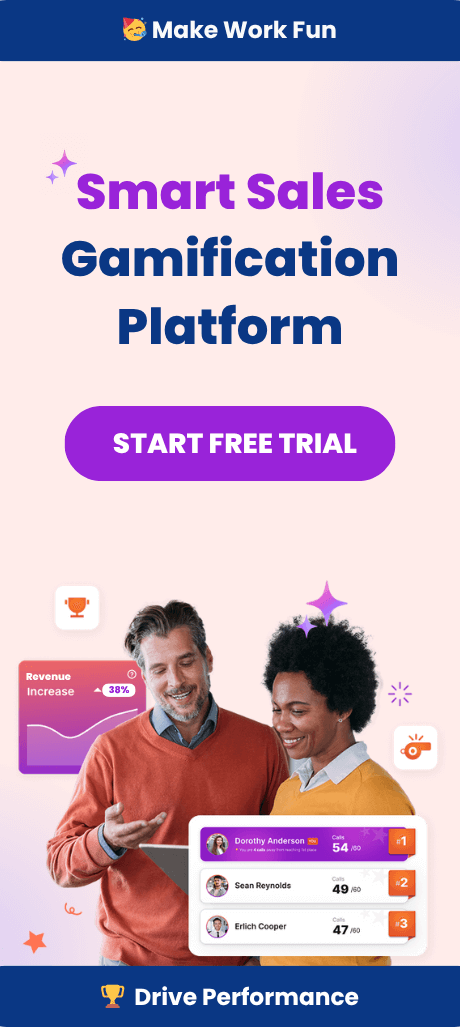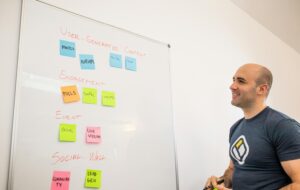Competition is the lifeblood of sales, but its nature significantly impacts outcomes. Healthy competition motivates sales representatives to elevate their performance, accelerate their learning, and enhance collaboration.
When strategically implemented, it cultivates a spirit of teamwork and shared accomplishment that propels results throughout the entire organization. By employing effective gamification techniques, companies can inspire their sales teams, sustain high morale, and mitigate burnout.
Let’s explore how!
Why Gamification Works in Sales Environments
Gamification is the strategic application of game-design elements and game principles in non-game contexts. In sales, this means integrating elements like points, badges, leaderboards, and challenges into the daily routines and long-term goals of sales teams. This approach works exceptionally well in sales because it taps into fundamental human psychological drivers such as the desire for achievement, recognition, competition, and progression.

By making the sales process more interactive and goal-oriented, managers can foster an environment where positive behaviors are intrinsically rewarded, thereby enhancing engagement, boosting morale, and ultimately significantly improving overall sales performance.
Turning Work Into Play
The typical sales day, often filled with tasks like cold calls, email outreach, follow-ups, and data entry, can quickly become repetitive and monotonous. Gamification offers a powerful solution by transforming these routine activities into exciting opportunities for winning, progressing, and celebrating success. Instead of seeing a call as just another task, a salesperson might view it as an opportunity to earn points, climb a leaderboard, or unlock a new badge.
This shift in perception not only alleviates the drudgery but also injects a sense of purpose and fun into the workday. It boosts morale by creating a dynamic and rewarding environment, making the achievement of sales targets feel less like a chore and more like “leveling up” in a captivating game. This playful approach encourages consistent effort and celebrates every step toward a larger goal.
Building Motivation Through Recognition

Recognition is undeniably one of the most potent motivators in any professional setting, and its impact is amplified within a sales context. When hard work and achievements go unnoticed, motivation can quickly wane. Conversely, timely and visible recognition can fuel a sustained drive for success. Spinify’s real-time recognition system is designed to capitalize on this by instantly rewarding achievements.
Whether it’s closing a major deal, exceeding a call quota, or making a significant number of follow-ups, Spinify ensures that every success, regardless of its size, is immediately celebrated and publicly acknowledged. This instant gratification reinforces positive behaviors, builds confidence, and fosters a culture where continuous improvement and high performance are not just expected but actively encouraged and celebrated.
Creating a Culture of Continuous Improvement
Healthy competition within a sales team isn’t about fostering a cutthroat environment; it’s about promoting a culture where every individual and the team as a whole are consistently striving for progress, not just perfection. Spinify’s gamified dashboards are specifically designed to highlight personal and team advancements.
By visually showcasing growth over time, these dashboards intrinsically motivate sales representatives to outperform their previous results. This focus on personal bests, rather than solely on direct comparisons with colleagues, naturally encourages a supportive atmosphere where teammates can cheer each other on and learn from shared successes, fostering a collective drive towards continuous improvement.
The Psychology Behind Gamification
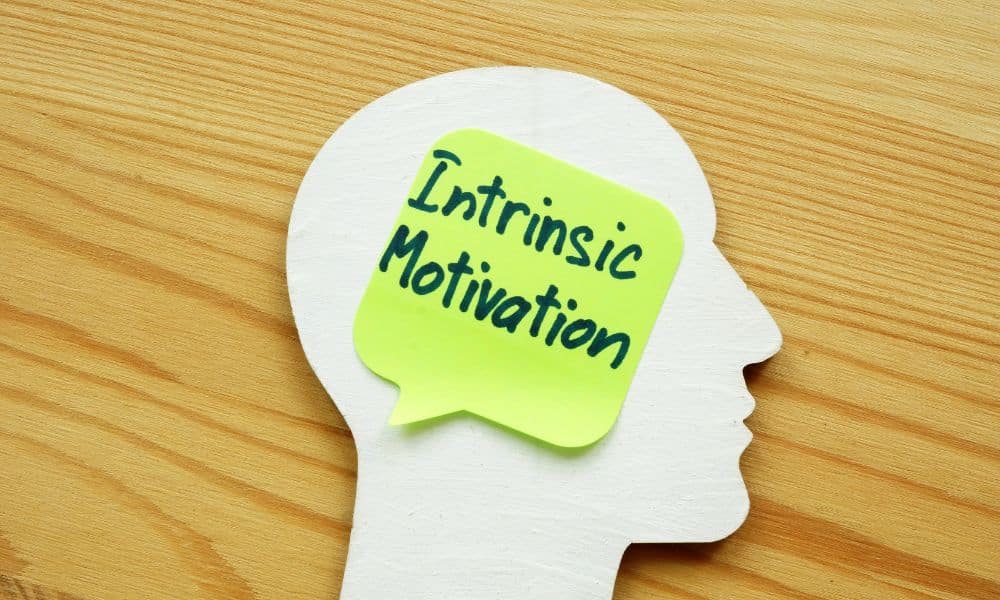
Gamification’s effectiveness in driving sales performance is rooted in its sophisticated understanding of human psychology. It masterfully taps into both intrinsic and extrinsic motivators, creating a powerful blend that sustains engagement and performance over the long term. Intrinsic motivators, such as the inherent desire for mastery and the satisfaction of achieving challenging goals, are deeply personal and provide an internal drive to excel. Sales reps feel a sense of accomplishment as they close more deals or exceed call targets.
Alongside these, extrinsic motivators like tangible rewards and public recognition play a crucial role. Acknowledging top performers on a leaderboard, offering bonuses for reaching specific milestones, or providing public shout-outs for exceptional efforts all serve to reinforce positive behaviors and incentivize continued high performance. This dual approach ensures that sales teams are not only driven by external incentives but also by a deep-seated desire to improve and succeed, leading to sustained performance enhancements and a more engaged workforce.
Setting Clear, Measurable Goals
The foundation of any successful gamification strategy, particularly in a sales context, lies in absolute clarity regarding objectives. Before any gamified elements are introduced, it is imperative to define specific, measurable, achievable, relevant, and time-bound (SMART) sales metrics. This means moving beyond vague aspirations and instead pinpointing exact targets. Examples include the number of deals closed within a quarter, the volume of outbound calls made per day, the total revenue generated by a team in a month, or the conversion rate of leads to opportunities.
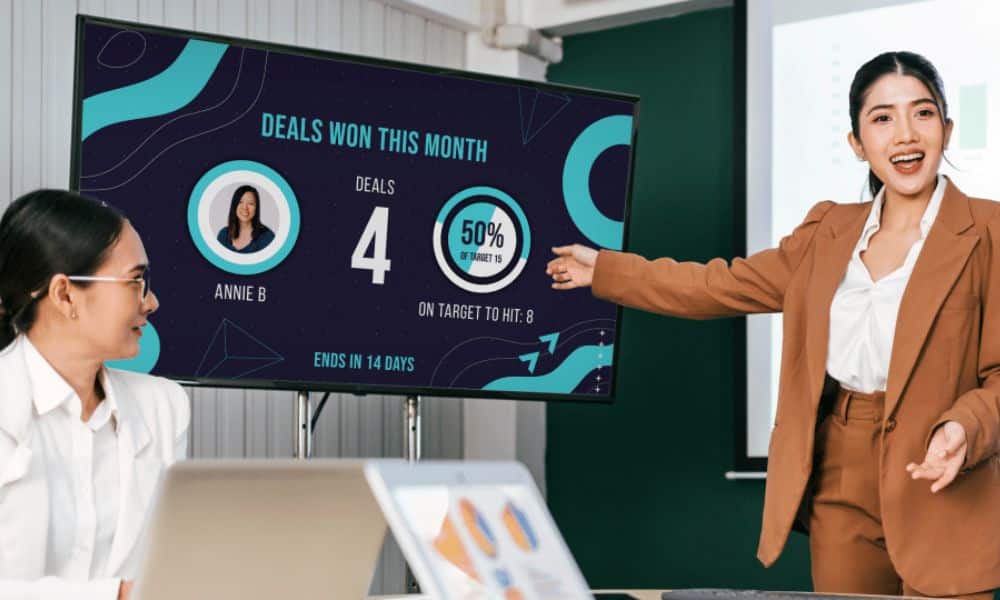
When these metrics are clearly communicated and consistently tracked, sales representatives gain an unequivocal understanding of what success looks like. This clarity eliminates ambiguity, allowing reps to focus their efforts effectively, prioritize their activities, and directly observe the impact of their hard work on their individual and team progress within the gamified system.
Rewarding Consistency, Not Just Wins: Fostering a Culture of Continuous Effort
While acknowledging and celebrating your top-tier sales performers is undeniably crucial for morale and motivation, a truly effective sales gamification strategy goes beyond just spotlighting the winners. It’s about cultivating a culture where consistent effort is recognized and rewarded, thereby empowering and motivating the often-overlooked middle 60% of your sales team. This broader approach fosters greater inclusion, reduces the risk of burnout among those not consistently at the very top, and ultimately drives more sustainable, long-term success for the entire team.
Spinify offers intuitive tools that make it easy to implement this philosophy by allowing you to set up diverse milestones. These milestones can reward both the effort invested by your sales reps (e.g., number of calls made, demos scheduled, or proposals sent) and the outcomes achieved (e.g., deals closed, revenue generated, or new customers acquired). By recognizing consistency in activities that lead to sales, you create a more equitable and encouraging environment where every team member feels valued and sees a direct path between their daily efforts and tangible rewards. This approach not only boosts individual motivation but also contributes to a more resilient and high-performing sales organization.
Encouraging Collaboration Alongside Competition: The Power of Team-Based Success
The notion that competition inevitably leads to rivalry and internal strife is a common misconception in sales environments. In reality, competition can be a powerful catalyst for growth and engagement when skillfully integrated with opportunities for collaboration. By designing team-based contests and challenges, you can harness the invigorating spirit of competition while simultaneously promoting a strong sense of camaraderie and shared purpose among your sales reps.
Instead of pitting individuals directly against each other in every scenario, team-based contests encourage reps to work together, leveraging each other’s strengths and supporting one another to achieve collective goals. This not only builds stronger relationships within the team but also allows for knowledge sharing, mentorship, and a more robust overall performance. Spinify’s dynamic team leaderboards are specifically designed to facilitate this balance. They provide a clear visual representation of team progress and standings, thereby promoting healthy competition among different groups or divisions while maintaining an overarching focus on collaboration within each team. This strategic blend ensures that the competitive edge remains sharp, but it’s channeled in a way that strengthens the entire sales force.
Leaderboards That Inspire, Not Intimidate: Making Success Accessible to All
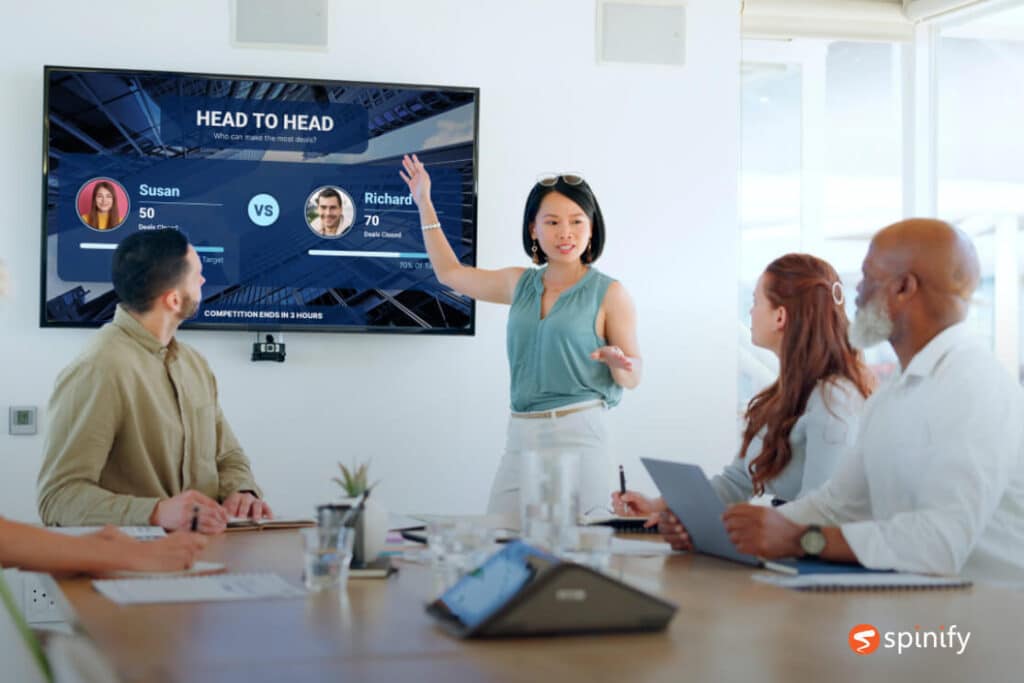
A poorly designed leaderboard can inadvertently create an environment of discouragement, where only a select few consistently dominate the top spots, leaving the majority feeling out of reach and unmotivated. The true purpose of a leaderboard should be to inspire and encourage everyone on the team, providing clear pathways to success and celebrating a diverse range of achievements.
Spinify’s highly customizable leaderboards are engineered with this principle in mind. They empower sales managers to move beyond a singular focus on just revenue or closed deals. Instead, managers can highlight multiple, diverse metrics that reflect different aspects of the sales process and individual contributions. This means that a rep who excels at prospecting might be recognized for the number of new leads generated, while another who is a master at customer retention could be celebrated for their renewal rates. By showcasing a variety of successes, these customizable leaderboards ensure that every rep has a genuine opportunity to shine, regardless of their specific role or strengths. This inclusive approach fosters a sense of accomplishment across the entire team, making the leaderboard a source of motivation rather than intimidation.
Creating Meaningful Rewards: Connecting Effort to Value
The effectiveness of any gamification strategy hinges on the perceived value and desirability of its rewards. Rewards should never be arbitrary; instead, they should be thoughtfully designed to reinforce your company’s core values and genuinely appeal to the diverse interests and preferences of your sales team. When rewards are meaningful, they strengthen the psychological connection between a sales rep’s effort and their ultimate success, creating a powerful feedback loop that drives sustained motivation.
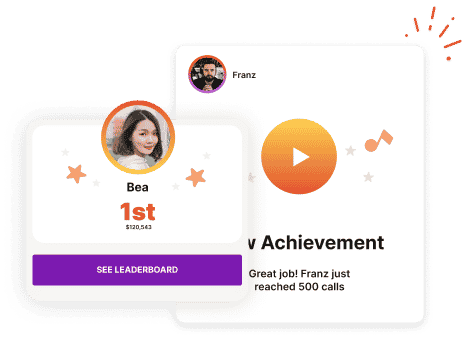
Meaningful rewards can take many forms, extending far beyond simple cash bonuses. Consider offering experiential rewards such as an extra day off, a personalized professional development course, or an exciting team outing. Gift cards to popular retailers, restaurants, or experiences also offer flexibility and appeal. Furthermore, the power of public recognition should never be underestimated. Acknowledging achievements in team meetings, company newsletters, or on Spinify’s digital signage can be incredibly motivating, boosting morale and fostering a sense of pride. By understanding what truly motivates your team members and aligning rewards with those interests and your company’s values, you transform incentives from mere transactional exchanges into powerful tools that drive engagement, loyalty, and exceptional performance.
Providing Real-Time Feedback
Instant feedback is crucial for sales representatives to understand the immediate impact of their actions. When reps receive real-time updates, they can quickly discern what sales strategies are effective and which ones need to be adjusted or discarded. This agile approach to performance improvement fosters a culture of continuous learning and adaptation.
Spinify, for instance, excels at providing these real-time insights, allowing sales professionals to monitor their progress, identify areas for improvement, and fine-tune their approaches on the fly, directly influencing their success in closing deals and achieving targets. This immediate gratification and clear understanding of their performance are powerful motivators.
Building Sales Games Around Key Metrics
To truly motivate a sales team, gamification should be strategically aligned with the core metrics that drive business success. Sales games built around key performance indicators such as the number of calls made, demos scheduled, or deals successfully closed transform what might otherwise be perceived as routine tasks into engaging and competitive challenges.
This approach not only injects an element of fun into daily responsibilities but also clearly communicates to the sales team which activities are most valued and directly contribute to the company’s goals. By focusing on these specific metrics, organizations can ensure that the competitive spirit fostered by gamification directly translates into tangible business results.
Using Levels and Achievements
Drawing inspiration from the highly successful mechanics of video games, incorporating levels and achievements into a sales gamification strategy provides sales representatives with clear milestones and goals to strive for. This structured progression offers a sense of accomplishment and encourages continuous improvement. As reps advance through levels and earn achievements, they gain recognition for their hard work and success, fostering a sense of pride and motivating them to reach even higher.
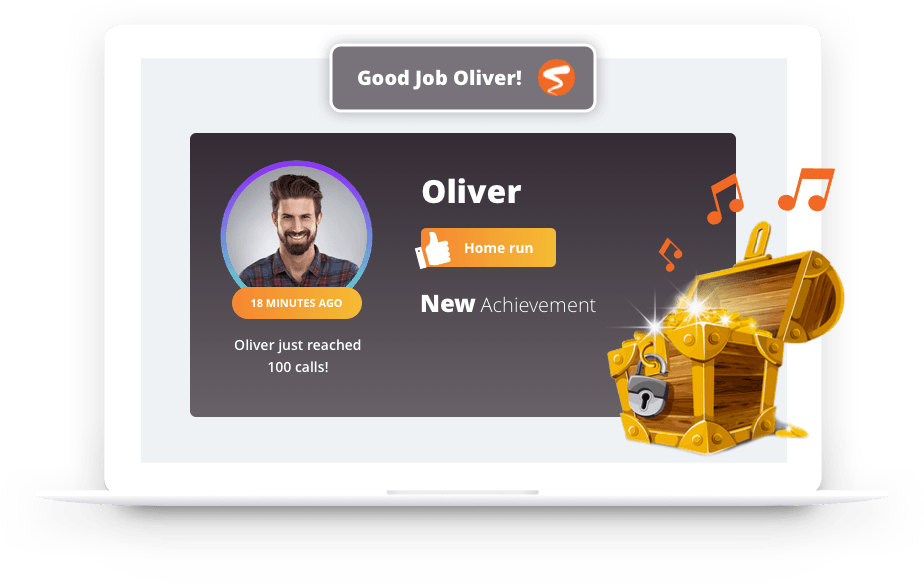
Spinify offers managers the tools to design custom badges and challenges that effectively mark progress and celebrate significant milestones. These visual representations of success, whether a “Top Closer” badge or a “Consistent Prospector” award, serve as powerful motivators, reinforcing positive behaviors and encouraging sales reps to push their boundaries.
Incorporating Time-Bound Contests
The energy and excitement of short-term contests are invaluable for maintaining high momentum within a sales team. Time-bound challenges, such as weekly or monthly competitions, are particularly effective because they prevent the onset of fatigue that can sometimes accompany long-term goals. These focused sprints provide frequent opportunities for teams to celebrate successes, keeping morale high and fostering a dynamic and engaging work environment.
The anticipation of a new contest and the opportunity to win recognition or rewards can significantly boost productivity and focus. Moreover, the clear start and end dates of these contests create a sense of urgency and encourage a burst of intense effort, leading to improved performance within specific periods.
Highlighting Individual Strengths
Gamification is a powerful tool for recognizing the diverse talents within a sales team. Instead of solely focusing on overall sales figures, it allows for the spotlighting of unique contributions. For instance, some representatives might excel in achieving high customer satisfaction scores, demonstrating exceptional post-sale support and relationship building.
Others might be masters of upselling, skillfully identifying and fulfilling additional customer needs. By creating specific metrics and recognition for these varied achievements, every team member feels their individual strengths are seen and valued. This not only boosts morale but also encourages reps to leverage their natural aptitudes, ultimately leading to a more well-rounded and effective sales force.
Promoting Transparency and Fairness
For any competitive environment to be healthy and motivating, transparency is paramount. Gamification, when implemented correctly, ensures that the playing field is level for everyone. Spinify’s data-driven dashboards exemplify this by presenting all achievements and progress based on objective, quantifiable metrics. This eliminates any possibility of favoritism, bias, or guesswork in performance evaluation.
When reps can clearly see how their efforts translate into progress on the leaderboards and toward their goals, trust in the system increases. This clear visibility fosters a sense of fairness, encouraging every team member to strive for their best, knowing that their hard work will be recognized purely on merit.
Encouraging Peer Recognition
Beyond individual and transparent recognition, fostering a culture of peer recognition is crucial for building a strong and cohesive sales team. When team members are encouraged to celebrate each other’s successes, it cultivates a deep sense of trust and camaraderie. This could involve features within a gamification platform that allow reps to give shout-outs, virtual high-fives, or award points to colleagues for outstanding performance, helpful advice, or collaborative efforts.
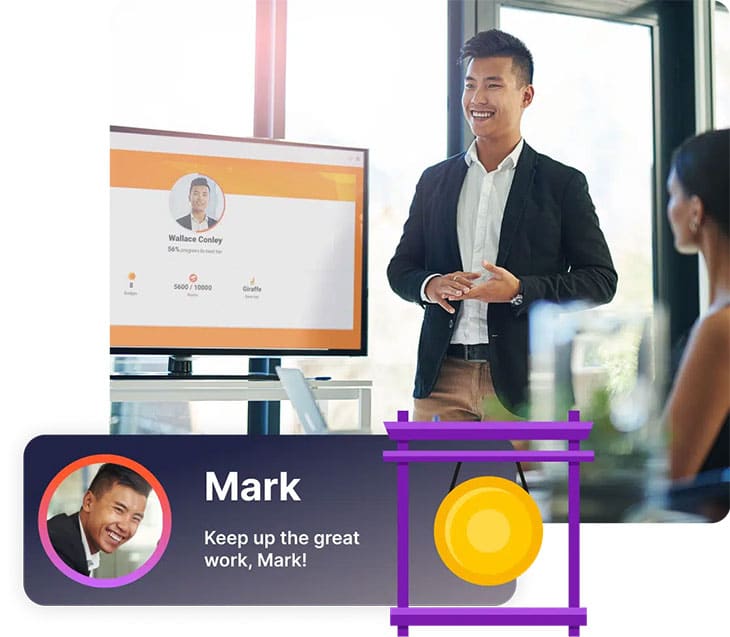
Such initiatives reinforce a positive, supportive, and collaborative culture, where team members feel invested in each other’s achievements. This not only boosts individual confidence but also strengthens team bonds, creating an environment where everyone feels supported and motivated to collectively achieve sales goals.
Measuring the Impact of Gamification
To truly understand the value of gamification, it’s crucial to establish clear, measurable metrics. This isn’t just about tracking activity; it’s about evaluating the program’s effectiveness in achieving tangible business outcomes. Key metrics include engagement scores, which can quantify participation levels and user interaction with the gamified elements. Sales growth is another critical indicator, directly linking gamification to revenue generation. Furthermore, tracking retention rates, both for employees and customers (if applicable to the gamified program), can reveal the long-term impact on loyalty and team stability.
A notable Salesforce study highlighted the power of gamification, revealing that gamified sales teams experienced a significant 30% increase in productivity. This data underscores the potential for well-designed gamification initiatives to drive substantial improvements in performance and efficiency.
Aligning Gamification With Company Goals
The most successful gamification strategies are not isolated initiatives but are deeply integrated with the broader organizational objectives. It’s imperative that every contest, recognition program, and incentive within the gamified system directly reinforces the company’s core values, strategic priorities, and overarching mission. For instance, if a company’s goal is to increase market share in a new region, gamified challenges could reward sales reps for securing new clients in that specific area.
By explicitly aligning gamification with these broader company values, efforts remain focused, meaningful, and contribute directly to the strategic direction of the business, preventing arbitrary or disconnected activities that don’t yield impactful results.
Maintaining Momentum Through Storytelling
To sustain engagement and prevent gamification from becoming a short-lived novelty, incorporating narrative elements is a powerful technique. By weaving a story around contests and challenges, you transform them from simple tasks into compelling adventures. Whether it’s framing a sales push as “Mission Revenue,” embarking on “The Great Quarter Quest,” or navigating a “Sales Safari,” storytelling adds a layer of excitement, intrigue, and emotional investment for sales representatives.
This narrative approach fosters a sense of purpose beyond just hitting numbers, creating a shared experience that keeps teams motivated, fosters camaraderie, and significantly extends the lifespan and effectiveness of gamified programs. The emotional connection cultivated through storytelling can be a significant differentiator in maintaining long-term engagement and driving consistent performance.
Balancing Individual and Team Success for a Thriving Sales Environment
A critical aspect of fostering healthy competition within sales teams is striking a delicate balance between recognizing individual achievements and promoting collective success. When the focus shifts too heavily towards individual rewards, it can inadvertently cultivate a toxic environment, leading to internal rivalries and a reluctance to collaborate. Conversely, an exclusive emphasis on team goals might diminish the personal drive that motivates high-performing reps.

Spinify’s gamification features are specifically designed to navigate this challenge, allowing you to create dynamic contests that champion both personal accountability and shared achievement. For instance, you could implement a tiered reward system where top individual performers receive recognition, while also offering team bonuses for reaching collective sales targets. This dual approach ensures that every salesperson feels valued for their personal contributions while also understanding the importance of working together towards common objectives. By carefully structuring these incentives, you can transform potential rivalries into a powerful force for mutual support and overall team growth, ensuring that the competitive spirit remains healthy and productive.
Building a Positive Feedback Loop for Consistent Engagement
Gamification is highly effective because it intrinsically creates a powerful and continuous positive feedback loop. This loop operates on a simple yet profound principle: sustained effort directly leads to recognition, recognition in turn fuels motivation, and increased motivation ultimately drives further effort. This cycle, when properly implemented, becomes a self-perpetuating engine for engagement and performance.
Spinify excels at automating this vital feedback loop, ensuring that it operates consistently and effectively without requiring constant manual intervention. Imagine a sales rep closing a significant deal; Spinify immediately broadcasts this achievement on leaderboards and digital signage, providing instant recognition. This public acknowledgment not only validates the rep’s hard work but also inspires others.
As a result, reps are consistently motivated to put in more effort, knowing that their contributions will be seen and celebrated. This automated and real-time feedback mechanism is crucial for maintaining high levels of energy, morale, and productivity within the sales team, transforming every success into a catalyst for future achievements.
Encouraging Learning and Skill Development for Long-Term Success
While it’s natural for sales contests to focus on immediate revenue generation and hitting sales targets, limiting gamification to these metrics overlooks a crucial aspect of long-term team success: continuous learning and skill development. A truly effective gamification strategy extends beyond transactional wins and invests in the growth of your sales force.
By expanding the scope of your contests, you can strategically reward reps for activities that foster professional development. This could include gamifying the completion of essential training modules, encouraging the mastery of new sales tools and CRM functionalities, or even incentivizing participation in mentorship programs. For example, a contest could award points for completing a certification course on a new product, or for demonstrating proficiency in a new lead generation software.
This approach not only enhances individual capabilities and confidence but also ensures that your sales team remains adaptable, innovative, and equipped with the latest knowledge and skills required to excel in an ever-evolving market. By making learning a competitive and rewarding endeavor, you cultivate a culture of continuous improvement that directly contributes to sustainable success and a more resilient sales organization.
Supporting Remote and Hybrid Teams
Gamification is an incredibly effective tool for bridging the geographical and psychological gaps that can emerge within remote and hybrid workforces. By integrating gamified elements into daily operations, companies can foster a sense of unity and shared purpose, ensuring that every team member, regardless of their physical location, feels connected and valued. Platforms like Spinify, with their seamless integrations into popular communication tools such as Slack and Microsoft Teams, play a crucial role in this.
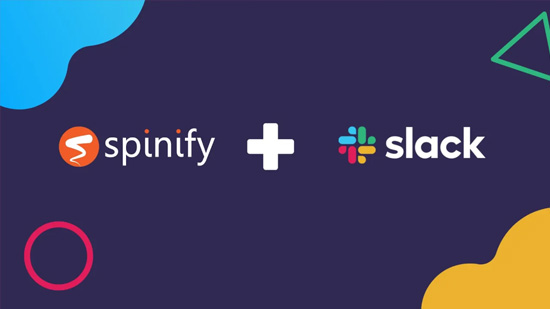
These integrations allow for real-time recognition and celebration of achievements, ensuring that remote and in-office employees alike are visible and celebrated for their contributions. This constant feedback and acknowledgment are vital for maintaining morale, promoting teamwork, and preventing feelings of isolation among remote staff.
Recognizing Small Wins for Mental Health
The consistent celebration of small wins is not merely a feel-good exercise; it’s a strategic imperative for improving employee morale and significantly reducing the risk of burnout. In the fast-paced and often high-pressure world of sales, the cumulative effect of unacknowledged effort can be detrimental to mental health and overall job satisfaction. By implementing frequent recognition programs, companies can create a culture of appreciation where every step forward, no matter how minor, is acknowledged.
This regular positive reinforcement builds confidence, fosters a sense of accomplishment, and helps employees feel valued. Studies, such as those conducted by Deloitte, powerfully illustrate the tangible benefits: companies that prioritize and implement frequent recognition programs experience a remarkable 31% lower turnover rate. This statistic underscores the direct link between employee recognition, improved mental well-being, and long-term retention.
Gathering Feedback From the Team
The success and longevity of any gamification program hinge on its ability to truly motivate the individuals it aims to engage. Therefore, a critical step in developing and maintaining effective gamified strategies is to actively solicit and incorporate feedback directly from employees. Simply put, ask your team what truly motivates them. This proactive approach ensures that gamification programs remain relevant, exciting, and genuinely impactful over time. What one team finds engaging, another might find uninspiring.
By understanding individual and team-level preferences—whether it’s competitive leaderboards, collaborative challenges, or skill-based recognition—managers can tailor programs to resonate deeply with their sales force. This iterative process of feedback collection and program adjustment not only enhances the effectiveness of gamification but also demonstrates to employees that their input is valued, fostering a greater sense of ownership and engagement.
Keeping It Fun and Fresh

One of the biggest pitfalls of any gamification strategy is allowing it to become stale or predictable. To maintain high levels of engagement and prevent the program from becoming just another routine task, it is essential to keep it fun and constantly refreshed. This involves regularly rotating challenges, introducing new objectives, and frequently updating leaderboards.
The novelty of new goals and the excitement of a fresh competition are powerful motivators. Platforms like Spinify are designed with this in mind, providing managers with intuitive tools to easily create new contests, adjust performance metrics, and update goals with minimal effort. This flexibility ensures that the gamification program remains dynamic and responsive to evolving team needs and interests, preventing monotony and consistently re-energizing the sales team.
Real-World Examples of Gamification Success
The efficacy of gamification techniques is not merely theoretical; it is demonstrably proven through the widespread adoption and success observed in leading global organizations. Companies such as Google and LinkedIn, renowned for their innovative cultures and highly engaged workforces, have successfully implemented various gamification strategies to significantly increase employee engagement and foster greater collaboration.
These industry giants have leveraged the inherent human desire for play, achievement, and recognition within their professional environments. Their success stories serve as compelling testaments to the lasting power of play in driving performance, enhancing team dynamics, and creating more dynamic and motivating workplaces across diverse professional settings.
Make Healthy Competition Your Advantage With Spinify
Leveraging gamification is not merely about transforming work into a game, but rather about cultivating a genuinely rewarding experience for your sales team. By strategically integrating elements of healthy competition, providing immediate and actionable feedback, and ensuring meaningful recognition for achievements, you can foster a dynamic culture where collaboration and individual success are paramount.
Spinify offers a powerful and intuitive platform to implement these gamification principles, providing features like interactive leaderboards, AI-driven insights to optimize performance, and seamless integrations with your existing tools. If you’re ready to significantly enhance your sales performance and unlock the full potential of your team, we encourage you to try Spinify today. Discover firsthand the transformative impact that gamified motivation can have on your team’s engagement, productivity, and overall success.

